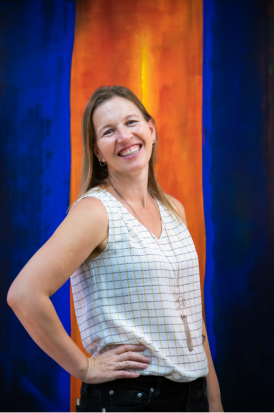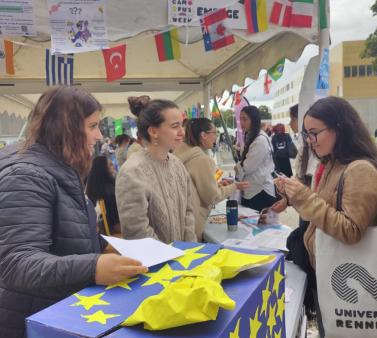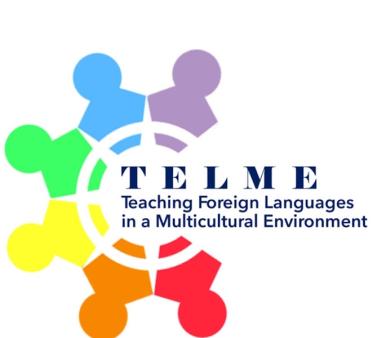
Colleen C. Myles is a human/cultural geographer specializing in political ecology and what she called 'fermented landscapes'. Her research and teaching focus on land and environmental management, (ex)urbanization, sustainability, tourism, food and agriculture, and the geography of fermentation (including wine, beer, cider, and spirits).
Yvon Le Caro is a teacher-researcher in rural geography and planning. He has worked on diverse topics from agronomy to agricultural economics to social geography. His teaching focuses on the geography and planning of rural areas, at the scale of Brittany, France, the European Union and the world.
Was this your first visit to Rennes 2 and how did this interesting collaboration first come about?
Colleen C. Myles (CCM): This was actually my second visit to Rennes 2. I was previously there in 2017 on an Erasmus + grant thanks to the bilateral partnership established between our two universities. The Geography Department of Rennes 2 and Texas State University (TXST) have been working together for a number of years now, and also in conjunction with the ESO research center and the LETG research center. More widely, TXST has a memorandum of understanding with Rennes 2 for a French study abroad program that is made available for our students on a regular basis. So we’ve had quite a few faculty and student exchanges over some time.
Yvon Le Caro is my main collaborator at Rennes 2. We have similar fields of research in geography and have been working together steadily since that last visit. We’ve been able to cultivate a very good working relationship. When he found out about that International Chair for Humanities and Social Sciences program, he invited me to apply, which I’m happy I did. This collaboration has been productive for both teaching and research, as my first visit was more research-focused, while this last one was more teaching-focused.
Could you tell me about the collaborative teaching program that you established together?
CCM: Yes, well since I couldn’t arrive any earlier than the end of May due to my own teaching schedule at TXST, we were facing the challenge that the Rennes students would already be finished with their courses by the time I arrived. So we decided to set up a different kind of exchange using digital technologies like Zoom with the students before their summer break. I recorded and then relayed a series of lectures in March and early April. In this way, I offered four lectures spread out over several weeks. The topics revolved around: the conceptualization of fermented landscapes, social justice issues in environmental interpretation, contemporary approaches in political ecology, and my latest focus, which is tastemaking as placemaking. The recordings enabled Yvon to invite a variety of students, department colleagues and ESO research members to view them and then lead a discussion on those topics. Those videos were then shared on CURSUS, Rennes 2’s digital course platform. Once I arrived in Rennes, Yvon set up a live lecture, mostly for other researchers, as well as a number of informal meetings for me. Since I had already completed the instructional part of our exchange, it left us with more space to have meaningful discussions on the different topics.
Could you tell me more about the concept of fermented landscapes?
CCM: Sure, Fermented Landscapes: Lively processes of socio-environmental transformation is a book that I edited and worked on for a number of years, around the same time as when my collaborations with Yvon first got started. The short version is that this idea of fermented landscapes is looking at how people and ideas move across the so-called rural-urban interface, with special attention to the role of fermented products in those processes. The conceptualization uncovers how fermentation industries in particular drive processes of landscape transformation in both rural and urban places. In the work, the concept of urban metabolism is key insofar as it helps to explain how places change over time in various ways.
My work on tastemaking as placemaking is a sort of continuation of that previous work. The idea is basically that, although the connections between taste and place are well established, tastemaking as a form of placemaking is a highly undertheorized area of study. My research thus seeks to discover and explore taste as a neglected component of the creation and re-creation of place—especially as such placemaking occurs amidst rapid, and drastic, social and environmental change. Given my background in developing and applying the concept of fermented landscapes, I am especially interested in how sustainability is put to work—in conjunction with literal and metaphorical processes of fermentation—in ways that are largely driven by conceptions of taste.
Is there a possibility that you’ll be able to continue to share these research topics with Rennes 2 students through the establishment of a joint teaching program / class - similar to what you undertook this past year?
CCM: That would be great! Back in 2017/2018, after I had first been to Rennes, Yvon later came to Texas as part of the exchange I described, and around that same time, we both decided to give a shared assignment to one of our classes where we asked our students to work together asynchronously. Asynchronously because, at that time, people were less equipped with things like Zoom than they are these days. But I asked my graduate students to review some work that some of his undergraduate students had done and it was really a good experience for them and for us. We haven't repeated that same model yet, but this year’s collaborative program has motivated us to start thinking about building something like that again.
Also, while I was there again in June, we met with a representative from the “Internationalization at home” program that Rennes 2 that encouraged us to pursue a joint class, which would fall nicely into that program. I believe that Yvon is also hoping to do that again either in the fall or the spring. We may not be able to completely mirror our whole classes together, given that they’re not exactly the same topics and taking into account the time difference, but we’d like to see if we could at least institute some kind of a co-learning experience for one of his classes and one of my classes. Given how much more technology has become part of our lives, the potential for these virtual international collaborations to be robust and meaningful has certainly increased.
—
For more information on the work of Dr. Colleen C. Myles, please go here, or contact her at: cch64 [at] txstate.edu (cch64[at]txstate[dot]edu).
For more information on the work of Yvon Le Caro at Rennes 2, please go here, or contact him at: yvon.lecaro [at] univ-rennes2.fr (yvon[dot]lecaro[at]univ-rennes2[dot]fr).
For more information on the joint research unit ESO-Rennes (ESO n°6590), please go here.
For more information on the 'internationalization at home' program, please go here.




